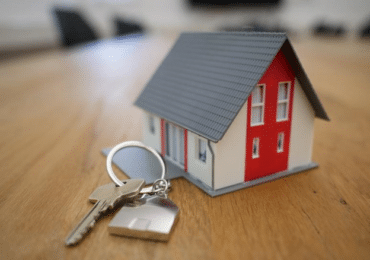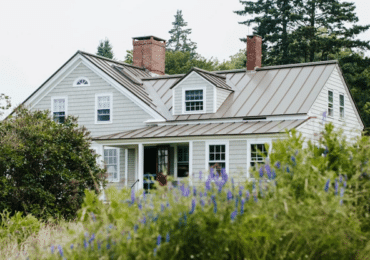Are you considering buying a house for the first time? If so, then congratulations! Purchasing your own home comes with many exciting prospects and opportunities. Yet, it can also be an overwhelming endeavor if you don’t know what to look out for. For this reason, we put together this blog post and give you our insight on all the factors that need to be taken into account before taking the plunge and buying a property. Let’s dive into it!

Do Your Research
The decision to buy a house is a big one, and it’s important to do your research before taking the plunge. You can utilize online resources to check out the steps to buying a home from real estate experts. But it doesn’t have to stop there: you should also consult with your local real estate agent to get a better understanding of the market in your area. And don’t forget to research the neighborhoods you’re considering!
Location and Neighborhood
Location is one of the most important factors to keep in mind when choosing where to live as it can significantly impact your daily life. Look around and analyze what’s available in the area: public transportation options, shopping malls, schools, parks, and other amenities that might be useful for you and your family.
Also, take into consideration whether or not the neighborhood is safe and secure. You don’t want to settle into an area that makes you feel uncomfortable or unsafe.
Budget
Before embarking on the exciting journey of searching for a house, it’s important to first calculate what you can realistically afford. While it’s easy to get swept up in the dream of a perfect home, it’s essential to set a budget and determine what you can comfortably spend each month on mortgage payments, property taxes, and upkeep costs. This will help you narrow down your search and prevent the disappointment of falling in love with a house that is simply out of your price range. Once you figure out your budget beforehand, you’ll be able to make a more informed and stress-free decision when it comes to finding your dream home.
Size
Your family’s needs and lifestyle should be at the forefront of your decision-making process. You want a home that feels cozy and comfortable, but not cramped and cluttered. Consider factors like the number of bedrooms and bathrooms, as well as common areas like the kitchen and living room.
If you enjoy entertaining, you may even want a larger space to accommodate your guests. On the other hand, if you prioritize outdoor activities and travel, a smaller home may be the perfect fit for your on-the-go lifestyle. Ultimately, the size of your home should reflect your unique family dynamics and preferences.
Home Features
When searching for a new home, consider which features are most important to you and your family. Perhaps you’re an avid chef and require a spacious kitchen to prepare your delectable meals, or maybe you enjoy hosting gatherings and need an open floor plan to accommodate your guests. Alternatively, you might be someone who appreciates outdoor space and craves a spacious backyard for gardening or relaxation. At the end of the day, identifying your must-have home features can help you narrow down your search and find the perfect place to call home.
Potential Upgrades and Renovations
It’s easy to get caught up in the excitement of all the potential upgrades and renovations you can make. However, before making any big decisions, it’s important to do your research on the costs associated with these changes. For example, if you plan on installing a new sink or revamping the kitchen cabinets, you’ll need to factor in the cost of the materials and labor. The same goes for any outdoor renovations such as landscaping or replacing roof tiles. All these costs should be taken into account when determining your budget.
Property Taxes and Insurance
Purchasing a home is one of the biggest investments you’ll ever make. But it’s equally important to understand that your mortgage payments are not the only expenses you’ll have as a homeowner.
Factor in the cost of property taxes and homeowners insurance to ensure that you’re financially prepared for the responsibility. Property taxes vary by location and can change over time. Homeowners insurance is also a necessity, as it protects your investment and belongings in case of damage or natural disasters.
Make sure to carefully review your insurance policy to understand what is and isn’t covered so that you can rest assured that you’re protected in the event of an unexpected event. By taking these additional costs into account, you’ll be able to enjoy your new home without having to worry about any financial surprises.
Potential Resale Value
If you plan on staying in the same home for the foreseeable future, then you don’t necessarily need to consider its potential resale value. But if you’re considering purchasing a home with the intent of selling it at some point down the line, then this is an important factor to keep in mind.
Research recent sales and determine what buyers are looking for in your area. Think about what upgrades you can make to increase the home’s value. You don’t necessarily need to turn it into a showpiece, but making minor improvements such as installing energy-efficient appliances and freshening up the paint job can go a long way.
Home Inspection
Before finalizing your home purchase, it’s crucial to have a professional home inspection. A home inspector will examine the house from top to bottom, identifying any potential issues such as structural damages, plumbing or electrical problems, or needed roof repairs. This process can help you avoid expensive surprises after purchase, and it can also provide you with leverage for negotiating the price down if any issues are uncovered. While an inspection can add to the upfront cost of buying a home, it can save you from unexpected and costly repair bills in the future.

Buying a house is an exciting undertaking. But before taking this life-changing step, make sure that you’ve done your research and have considered all the necessary factors. Gather as much information as possible to make an informed decision. Talk to your real estate agent, research the local market, and calculate all the expenses associated with owning a home. With these tips in mind, you’ll be able to confidently purchase a house that is perfect for you and your family.

